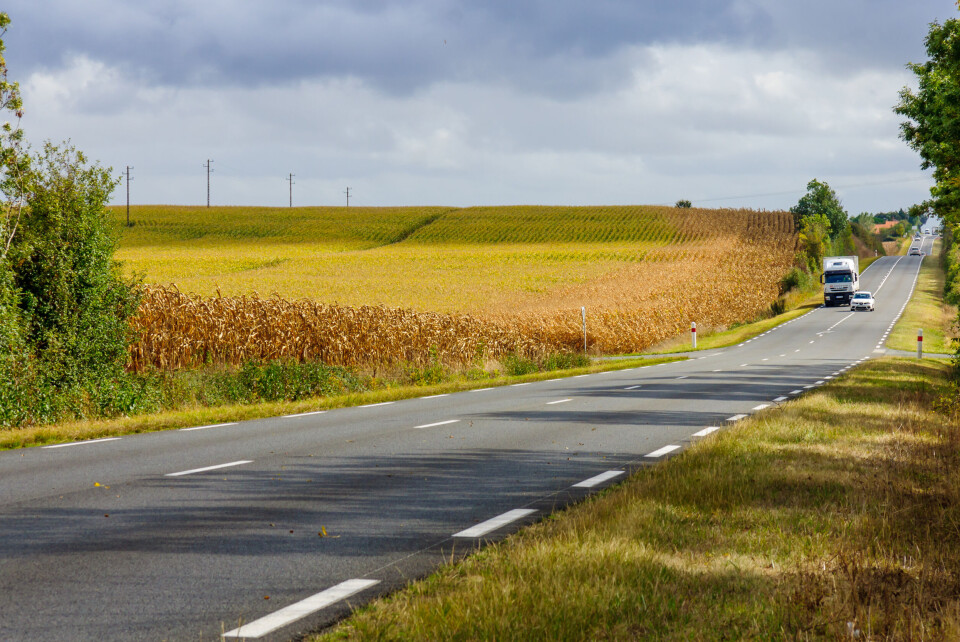-
Yellow lights for pedestrians in many cities in France - what do they mean?
The lights are being trialled in six major cities until 2027
-
Leclerc supermarkets to sell car fuel at cost price for Easter
The initiative will apply to diesel, petrol, and LPG
-
French motorway made free to motorbikes during Le Mans 24H bike race
There will also be rest stops available for motorbike riders travelling to and from the event
French state neglecting roads - report from government’s own auditor
Damning report shows central government delegated responsibility without proper funding leading to ‘dangerous’ bridges and outdated safety check methods

A shock report into the state of France’s roads has found a glaring lack of government interest in maintaining them.
The inquiry, by state auditor Cour des Comptes, came after France fell to 18th place in the World Economic Forum survey How good are your country’s roads? in 2019, having been first in 2012.
Grumbles in French media about crumbling roads are not new but the auditors joined in.
State gave responsibility to local authorities
They claimed their poor state showed the lack of concern and irresponsibility of successive governments in failing to build a coherent road strategy.
The state has steadily delegated responsibility for roads to local authorities and now looks after just 1.1% of the 1.1 million-kilometre road network.
Departments now maintain 380,000km of roads and communes 700,000km but the auditors said they had had no extra funds, while the government cut national road budgets.
Bikers call roads dangerous
With bikers particularly at risk, riders have drawn mock “hen’s nests” – complete with eggs and fluffy chicks – in potholes across the country, as part of a campaign to denounce what they call the “dangerous state of roads”. It is a play on the French word for pothole ‘nid-de-poule’.
Read more: Mock ‘hen’s nests’ appear in French potholes to fight for better roads
Didier Renoux of FFMC motorcycle action group said “road users must start demanding action and that money be spent” as there was no investment after decentralisation.
No log of bridges before 2020
The auditor said the government did not know what was happening – and did not even have a national record of the country’s bridges.
It said: “The question of the safety of bridges, after several spectacular accidents, shows a lack of basic knowledge of decentralised roads.
“We had to wait for the 2020 plan de relance [Covid-linked economic boost] for the government to count bridges and to check their condition in small communes.”
It said the system of checking the state of national roads and bridges was set in the 1990s and has not changed.
It also serves as a basis for allocating funds, which have changed little, meaning the proportion of roads needing maintenance has passed from 43% to 53% in the last dozen years.
Efforts to improve matters, using 3D imaging to give a rapid alert of dangerous roads, “encountered many difficulties, which deprived roads teams of information for several years”.
Evaluation systems are patchy
Although councils saw road finances as an “instrument of adjustment” when seeking to balance budgets, they had made an effort to catch up on repairs, with a 17% spending rise across the nation between 2017 and 2020, to reach €3.6billion.
Overall spending by councils is still lower than it was in 2014.
At a departmental level, with department councils being responsible for 34% of the total road network in France, the court said only 40% of them had succeeded in getting a completed survey of their roads.
Some departments had computer systems and automated systems, mainly using lasers, while others still relied on paper systems and agents evaluating roads while driving along them.
Consultants were brought in by the government and financing of maintenance on routes nationales was to rise from €750million a year to €1billion – but the consultants said this would not be enough to keep roads in their present state as maintenance had fallen so far behind what was needed.
Leaving roads to deteriorate is false economy
The auditor said regular maintenance had a cost but it was a fraction of the financing necessary if a road has to be rebuilt.
Drivers’ group 40 millions d’automobilistes said nearly half of road accidents had bad roads as part of the cause but while the government imposed ever tougher measures on drivers, it let maintenance slide.
Spokesman Pierre Chasseray said the state had neglected maintenance of secondary roads and acted as if this had no economic or social consequences.
“But for every €1 not spent at the right time, when it was still possible to carry out minor repairs, it now costs €10 to prevent the same road from falling into ruin.”
Road repairs won’t get you promoted
The Cour des Comptes said France’s road system could be reformed, but would need a real political will to do so.
It pointed to the creation of 11 DIR inter-departmental road maintenance groups where after 16 years the reform was still not completed, in part because a complex bonus system did not include middle management, so staff had little incentive to get promotion.
The auditor called for the state to allot more money for road maintenance, improve monitoring, and improve the efficiency of maintenance teams.
As its report was published, transport minister Jean-Baptiste Djebbari also received a report on “mobility infrastructures” but it made no explicit reference to road maintenance.
Related articles
Who should pay for my car damage caused by a pothole in a French road?
80 or 90km/h? French speed limit changes continue to cause confusion
12 questions and answers about private speed radar cars in France
























